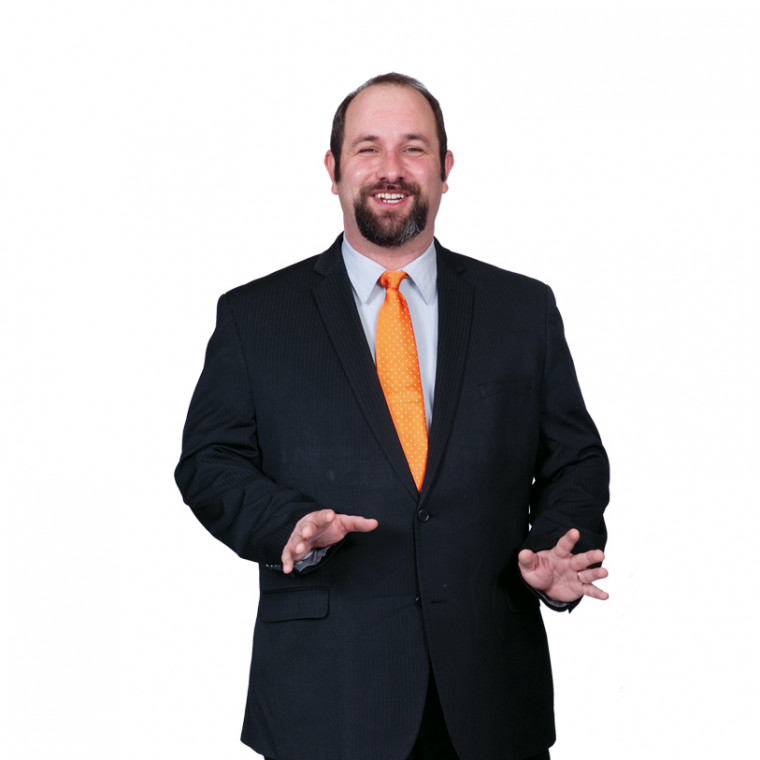Meet the New Forensics Director
Open gallery

This fall, Joe Gantt joined Lewis & Clark as its new forensics director and an instructor in the Department of Rhetoric and Media Studies (formerly the Department of Communication). He most recently headed the forensics program at Texas Tech University in Lubbock.
Texas Tech and Lewis & Clark are two very different schools. How has your experience compared so far?
They are completely different … 35,000 students as opposed to 2,000, a big state school feel versus a private liberal arts college. I had taught at a liberal arts college previously, and although I enjoyed working at my alma mater [Texas Tech], I missed the unique spirit of inquiry you find at a liberal arts college. At Lewis & Clark, I’m teaching with students, not to students. It’s a cooperative effort.
Also, it’s nice to have a curriculum that helps develop debaters who are strong across disciplines.
How does the rhetoric and media studies department complement the forensics program?
Historically, there’s been a link between the two. Our courses in argumentation and public discourse complement both the individual event side of our program as well as debate proper.
What do you think of the department’s recent name change?
I think it helps people better understand what we do. When people see “communication,” they tend to think whatever they want: “That must be TV, or radio, or public speaking.” The major is so much more than that.
What’s currently on your radar for the forensics program?
I’m working on a 5- to 10-year vision for how we manage our budget, how we do recruiting, how we reach out to alumni. It’s a difficult program to explain sometimes. You say “forensics,” and a lot of people think dead bodies. When we have successes, we need to be able to explain that these are shared achievements of the college community. It’s not just our victory, it’s everybody’s.
Last fall, you taught a course on campaign rhetoric, which was obviously timely. What did you cover?
We took each element of the campaign and looked at it from a general standpoint but then got more specific, asking how it was being used in this particular campaign. I wanted my students to turn on the news and be able to say, “Oh, I see that. I see what they’re trying to do.” We also looked at how candidates craft their campaign narratives and how they use polling data.
What did you think of the 2012 presidential debates?
I thought the debates were actually better than those in the past. I saw more interplay between the candidates, more direct refutation.
Why is it important to have an understanding of argument and rhetorical tools?
Growing up in Texas—and occasionally not having a holistic view of the world—I appreciate how debate allows me to see both sides of an issue. In forensics, we sometimes need to debate in favor of something we absolutely, completely disagree with. But going through that thought process is extremely helpful in understanding why we believe what we believe in the first place. Often when we analyze an argument critically, we’re analyzing only the points we disagree with. Being able to critically analyze your own side—and see the weaknesses in your own arguments—can be exceptionally helpful in any career.
How is the forensics team doing?
In November, we had our best win of the season at the University of the Pacific’s
Pat Kennedy Round Robin. It’s a debate tournament that’s open to only the top 12 teams in the country, and Joe Hykan CAS ’13 and Ben Mann CAS ’14 won! The field of teams was impressive, and it’s a testament to Joe and Ben’s hard work that they came out on top.
We’re really excited for the spring semester because Emily Halter CAS ’14, who was nationally ranked last year, will be back from an overseas study program. So we’re going to start putting the pieces together to make a run for the national championship.
—Compiled by Megan Morin CAS ’13
More L&C Magazine Stories
Lewis & Clark Magazine is located in McAfee on the Undergraduate Campus.
MSC: 19
email magazine@lclark.edu
voice 503-768-7970
fax 503-768-7969
The L&C Magazine staff welcomes letters and emails from readers about topics covered in the magazine. Correspondence must include your name and location and may be edited.
Lewis & Clark Magazine
Lewis & Clark
615 S. Palatine Hill Road MSC 19
Portland OR 97219

